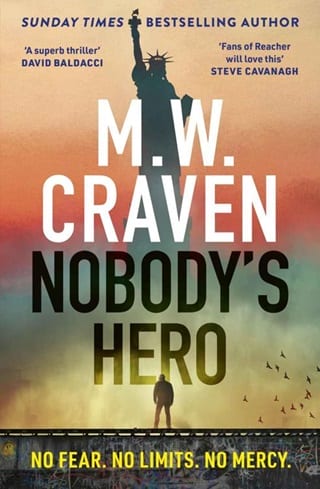Chapter 96
Chapter 96
‘I’ve never really talked about my family, have I?’ Margaret said.
‘Not in any depth,’ Carlyle replied. ‘Your father was a hereditary peer; your mother was involved in charity work. You have an elder brother who worked in the City.’
‘Two elder brothers,’ she said. ‘Anthony, my eldest brother, inherited the estate. As was customary for our family, James and I received nothing.’
‘Bit cruel,’ Koenig said.
‘It’s how the British aristocracy has survived for so long. The firstborn inherits everything. Nothing is split. It’s how generational wealth and power is built up. The family uses its influence to ensure the non-inheriting siblings are given rewarding roles to stop them causing trouble. And as money was the altar at which my family worshipped, James was given a well-paid position in an investment bank.’
‘And you joined academia.’
‘I wasn’t supposed to,’ Margaret said. ‘I was supposed to attend a Swiss finishing school. Their motto might as well have been “It’s better to learn from us than your mother-in-law.” As soon as I knew how to do silly things like interview for a gardener – you ask them about their preferred seed catalogue, in case you’re interested – I was scheduled to marry some weak-chinned country lord and knock out children like a brood hen.’
‘I can’t see you accepting that, Margaret,’ Carlyle said. She looked sad. The way people did when good friends did bad things. ‘In fact, I know you didn’t.’
‘No, I enrolled at Oxford. Studied cultural anthropology.’
Carlyle nodded.
‘Except what you know is incomplete, Elizabeth,’ Margaret said. ‘There’s a gap in my résumé.’ She picked up her cup and finished her coffee. ‘A nine-month gap.’
‘You were pregnant,’ Koenig said.
Margaret nodded. ‘If I might be permitted to use some vulgar American vernacular, my family had a stick up its ass. And that extended to our education. My brothers went to some ghastly boarding school in Scotland where sporting ability rather than academic achievement was celebrated. I was sent to the all-female equivalent. Imagine it. One hundred and fifty teenage girls all stuck in the middle of nowhere. Contact with boys was strictly forbidden. Some nights the air in the dormitory was so thick with pheromones you could barely breathe.’
‘Who was the father?’
‘A local boy. Delivered the strawberries in summer and the sprouts in winter. He never knew, and he has no bearing on this sorry tale.’
‘Your family weren’t happy?’
‘I’d never seen my father so angry. I swear, if my aunt hadn’t been there, he’d have thrown me in the moat.’
‘You had a moat?’
‘It’s an expression, dear.’
‘The nine-month gap in your résumé meant you had the child?’
‘My mother and father told their friends and acquaintances that formal education wasn’t for me, and that my needs would be best met by touring the Antipodes. My aunt would act as chaperone. She’d had a wild youth, full of indiscretion and scandal. Had had to tour the Antipodes herself at one point, she told me.’
‘Where did you really go?’
‘A sanitorium in France, one that catered for the elite of Europe and their many self-inflicted ills. I stayed there for six months, my aunt at my side the whole time. I’d thought she was there for support, to make sure I was OK. Really, she was there to do her duty. Do you know what that meant?’
Koenig didn’t hesitate. ‘She told you the baby died in childbirth.’
‘Indeed she did,’ Margaret said. ‘Something to do with the umbilical cord getting wrapped round the neck, blah blah blah. I had a day to recuperate, then it was all about showing them what the Wexmores are made of. The stiff-upper-lip, blessing-in-disguise speech.’
‘And the baby?’
She opened her arms wide.
‘What happened to the baby is everything,’ she said.
 Fullepub
Fullepub 



